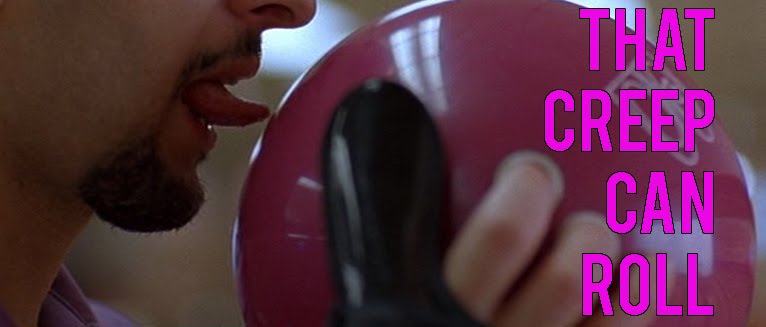Thursday, 14 February 2013
Review: THIS IS 40
This is 40, the latest film as writer-director from comedic superpower Judd Apatow, comes laden with the double baggage of not only a bulging running time but also its status as a ‘sort of’ sequel to the hugely popular Knocked Up.
Following peripheral characters from the 2007 film, Pete (Paul Rudd) and Debbie (Leslie Mann), we are reunited with them on the brink of hitting the milestone age of forty. Pete is the boss of a small record label which specialises in celebrating bands of a certain vintage, while Debbie runs a fashion boutique which employs Desi (Megan Fox) – a fact which doesn’t help Debbie’s issues surrounding her body and aging in general.
The crux of Apatow’s plotting hinges on the couple’s divergent approaches to the impending milestone. Debbie chooses to bury it and lie about her age, while the laid-back (aren’t all Apatow males?) Pete takes it in his stride. They are having to cope with financial strain, problems with their fathers – in Pete’s case the dependent Larry (Albert Brooks) and in Debbie’s the absent Oliver (John Lithgow) – as well as the day to day family struggles of bringing up two daughters (Maude and Iris Apatow). All of which is taking its toll on their fraught, but loving, relationship and spurs a desire to take stock of what they have and make some required changes.
This biggest joy lies in the welcome fact that this is a comedy about adults, for adults, and not aimed solely at manchildren or teenagers. It harks back to films like Bob & Carol & Ted & Alice, which offered a mature angle on the relationship comedy. It is certainly occasionally puerile but it deals with adult relationships and doesn't skew towards a younger demographic like, seemingly, every other modern comedy film.
On a line-by-line basis, this is maybe Judd Apatow's most observant, consistently funny film. Pete and Debbie have the kind of sparky, blow-exchanging relationship which only exists in films but while it might not have a ring of authenticity, it does ring true comedically. Apatow and his performers just get comedy and there is little in the way of his usual fallback stoner stuff here, although he still can't resist every character being pop culture savvy enough to crack, for example, a J.J. Abrams gag when needed.
It cannot be emphasised enough that it is funny. Very funny. There is a recurring Tom Petty motif that slays in each of the multiple iterations it is used. There is an undercurrent of meanness to Apatow’s characters that exists, even within a couple as obviously forgiving of each other’s flaws as Pete and Debbie, but it is deftly counteracted by that underlying affection. It gets so much right about portraying a love that knows bounds but keeps pushing through them and strengthening for it. The lead performances from Rudd and Mann are pitched perfectly between fragile and sassy and even Apatow’s and Mann's own daughters (as the family's fictional daughters) have grown into surprisingly natural comic performers since their last appearance.
The family supporting cast is equally tenderly portrayed and never at the expense of seeming as if they are smash-and-grab, quick laugh cameos. Brooks and Lithgow get a few nice, rounded scenes but others fare worse. Chris O’Dowd, Lena Dunham and Jason Segel barely warrant a mention based on how little they have to do and the less said about awkward, unnecessary appearances from musicians like Green Day's Billie Joe Armstrong and Ryan Adams, the better. What it has to say about family, and aging, and relationships is beautifully rendered. But there is no reason a comedy with a plot as slight as this needs to be 134 minutes long.
Some of the film does feel like padding and characters like Megan Fox’s suffer. Her performance ranks as her best but her appearance here unfortunately boils down to simply a good-looking counterpoint for Debbie’s neuroses. With some plot liposuction to remove the unsightly subplots like this, which breed extended scenes of clubbing revelry and forced drama, the film would be all the better for it.
It encounters the age-old Apatow problem of being so in awe of his characters that he can't seem to let go of unnecessary subplots and situations he obviously cares for. Although the film's biggest problem is that the engorged running time is filled with a central plot that relies on believing in the strain the central characters are under because of financial pressure. It is just that it is really tough to take some of it when that largely amounts to shots of characters looking sad in a BMW or moping around their massive house as their vanity record label flounders. The way these faintly-patronising issues are casually tossed into the mix leaves a nasty taste in the mouth.
There is plenty to admire, especially in the game performances of the leads. The improvisational script hits plenty of high notes and the Knocked Up connection is thankfully underplayed (although, it is occasionally notable by the absence of characters from that at key events - only Seth Rogen's Ben merits one mention.)
It is Apatow's longest film in relation to the scarcity of how much is actually happening, but does it feel as if he has pushed it too far? Maybe not quite, but it certainly could do with a bit of scaling back. This is funny, but this is also a bit ragged.
★★★★★
Tags:
2013 Reviews,
Review,
This Is 40
Subscribe to:
Post Comments (Atom)



No comments:
Post a Comment